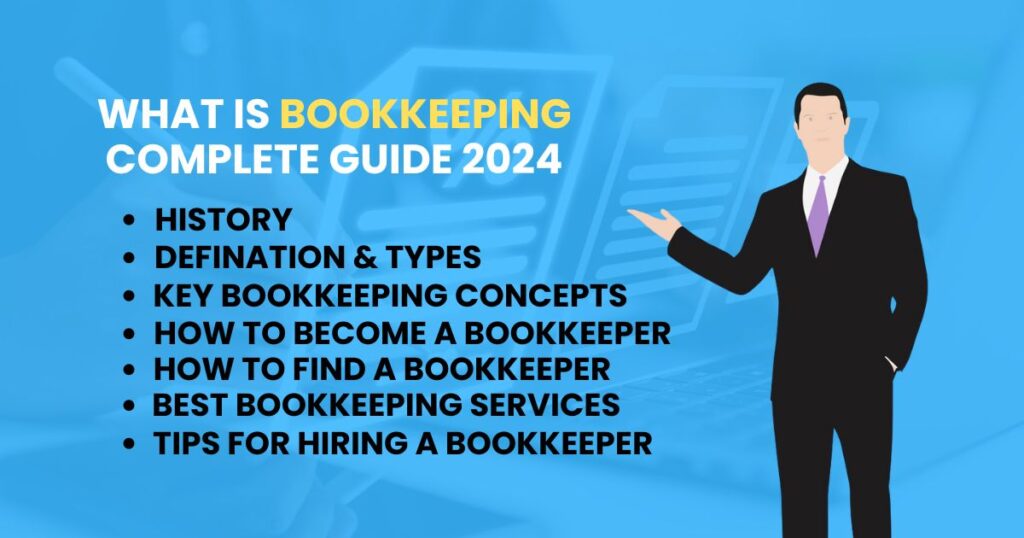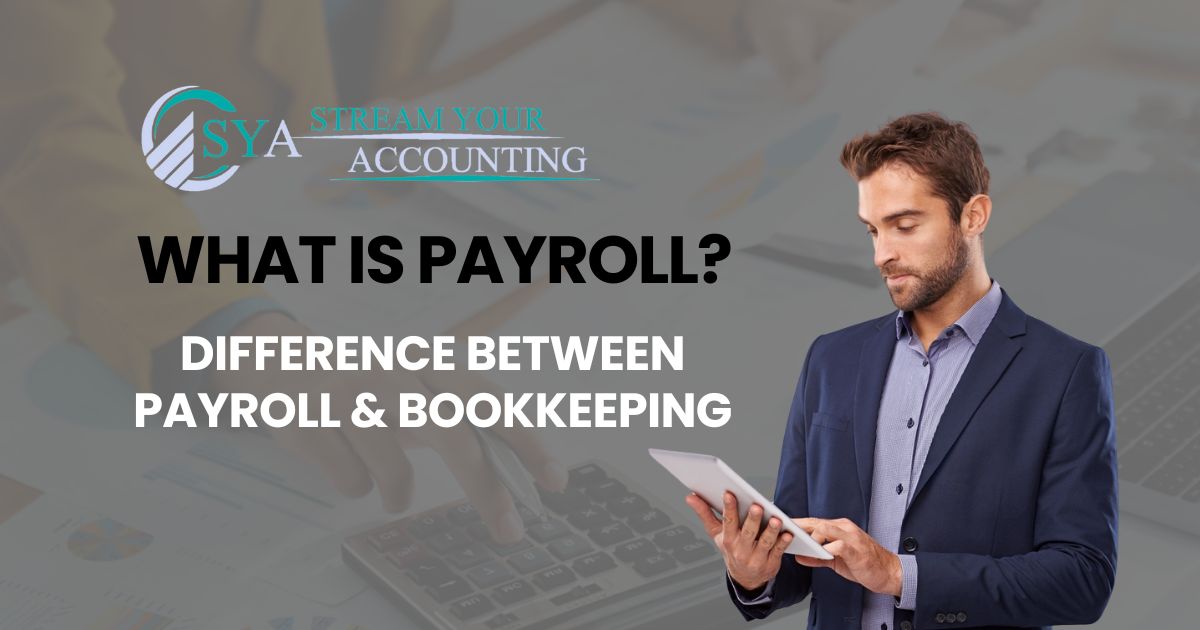Quick Answer: Difference Between Payroll and Bookkeeping
Understanding the difference between payroll and bookkeeping is vital for business owners. While both are key elements of a company’s financial management, they fulfill different roles. Payroll focuses on calculating and distributing employee wages, while bookkeeping involves recording financial transactions, keeping detailed records of income and expenses, reconciling accounts, and generating financial reports. This article will delve into these differences and highlight the importance of both payroll and bookkeeping in maintaining precise financial records and ensuring tax compliance.
Effectively managing both bookkeeping and payroll processes is crucial for businesses to maintain financial stability, regulatory compliance, and sustainable growth. Payroll guarantees that employees receive accurate and timely payments, while bookkeeping offers a comprehensive record of all financial transactions, facilitating informed decision-making. Together, these services underpin the economic health and success of a business.
What is Payroll?
Payroll is the process of calculating and distributing employee paychecks. Payroll involves tracking hours worked, calculating wages, and ensuring that all necessary deductions, such as
- Taxes
- Health insurance
- Retirement contributions are made accurately.
Payroll transactions must be processed efficiently to ensure employees are paid on time.
Moreover, payroll professionals handle a variety of employee benefits, including health insurance, retirement plans, and other optional deductions. They must also keep current with changes in tax laws and regulations to ensure observation of payroll-related obligations.
Furthermore, payroll processing involves more than just issuing paychecks. It involves the maintenance of precise payroll records, the creation of payroll reports for internal management and external parties, and the reconciliation of payroll accounts with entries in the general ledger to ensure precision. Diligent attention to detail in payroll processes is vital to guaranteeing accurate employee compensation and maintaining regulatory compliance within the company.
ALSO READ THIS: How to Make Business Grow By Outsourcing Bookkeeping
A. Payroll Task List
1. Calculating Wages
- Ensure accurate calculation of employee wages based on hours worked, overtime rates, and any applicable bonuses or commissions.
- Verify and reconcile employee timecards or attendance records to ensure accuracy in calculating hours worked.
- Handle adjustments for paid time off, sick leave, vacation time, and other leave types.
2. Deductions and Withholdings
- Oversee a range of deductions from employee paychecks, encompassing federal and state income tax withholdings, Social Security contributions, Medicare taxes, and other obligatory deductions.
- Manage voluntary deductions like retirement contributions (e.g., 401(k) or IRA), health insurance premiums, life insurance premiums, and additional employee benefits.

3. Compliance
- Stay updated on alterations in tax laws, labor regulations, and payroll-related compliance prerequisites.
- Ensure accurate and timely filing of payroll tax returns and compliance with tax deposit schedules.
- Follow wage and hour laws, including minimum wage standards, overtime pay regulations, and record-keeping duties.
ALSO READ THIS: Everything You Need to Know About Bookkeeping For Architecture Firms
4. Record Keeping
- Maintain comprehensive and precise documentation of all payroll transactions, encompassing employee earnings, deductions, and tax withholdings.
- Retain records of payroll registers, employee timesheets, pay stubs, and other payroll-related documents for auditing and compliance purposes.
- Prepare and distribute annual tax forms, such as W-2s and 1099s, to employees and contractors as mandated by law.
5. Managing Employee Benefits
- Administer employee benefits programs such as health insurance, dental insurance, vision insurance, and flexible spending accounts (FSAs).
- Handle enrollments, changes, and terminations in employee benefit plans, ensuring accurate deductions and contributions are made.
- Coordinate with insurance providers and third-party administrators to ensure the timely and accurate processing of benefit-related transactions.
6. Payroll Reporting
- Produce and distribute payroll reports to management and stakeholders, offering insights into labor costs, budget variances, and employee compensation trends.
- Prepare year-end payroll reports for tax reporting purposes, including Forms W-2, W-3, and 1099-MISC.
- Respond to inquiries from employees, management, regulatory agencies, and auditors regarding payroll-related matters.
7. Payroll Software Utilization
- Utilize specialized payroll software systems to automate routine payroll tasks, streamline data entry, and ensure accuracy in calculations and deductions.
- Customize payroll software settings to reflect company-specific payroll policies, employee benefits, and tax withholding preferences.
- Stay informed about updates and enhancements to payroll software platforms, implementing new features and functionalities to improve efficiency and compliance.

READ THIS ALSO: What is Catch up Bookkeeping?
Top 10 Key Difference Between Payroll and Bookkeeping
While both payroll and bookkeeping are vital for managing a business’s finances, they focus on different aspects.
1. Scope of Activities
| Payroll | Bookkeeping |
| Payroll focuses on managing employee compensation, including calculating wages, taxes, and benefits. | Bookkeeping covers all financial transactions within a business, including sales, purchases, receipts, and payments. |
2. Skill Sets Required
| Payroll | Bookkeeping |
| Payroll requires expertise in employment laws, tax regulations, and compensation management. | Bookkeeping necessitates a complete understanding of different financial transactions. |
3. Purpose
| Payroll | Bookkeeping |
| Payroll guarantees accurate and punctual payment to employees. | The purpose of bookkeeping is to provide a complete view of the company’s financial health and facilitate financial reporting. |

4. Focus
| Payroll | Bookkeeping |
| Payroll focuses on ensuring accurate and timely payments to employees. | Bookkeeping focuses on recording and organizing all financial transactions for the business. |
5. Software Usage
| Payroll | Bookkeeping |
| Payroll often utilizes specialized payroll software to manage employee compensation efficiently. | Bookkeeping may use bookkeeping software to record and organize financial transactions. |
6. Regulatory Compliance
| Payroll | Bookkeeping |
| Payroll must comply with various regulations related to employee compensation, including tax withholding, wage laws, and benefits administration. | At the same time, bookkeeping must ensure compliance with accounting standards and tax regulations for all financial transactions. |
7. Reporting
| Payroll | Bookkeeping |
| Payroll reporting involves generating reports on employee compensation, taxes withheld, and benefits provided. | Bookkeeping reporting includes financial statements such as balance sheets, income statements, and cash flow statements. |
8. Audience
| Payroll | Bookkeeping |
| Payroll primarily serves employees, tax authorities, and regulatory bodies. | Bookkeeping serves internal and external stakeholders, including business owners, investors, and auditors. |

9. Frequency
| Payroll | Bookkeeping |
| Payroll is typically processed on a regular basis, such as weekly, bi-weekly, or monthly, depending on the company’s payroll schedule. | At the same time, bookkeeping tasks may be ongoing but are often reconciled at the end of each accounting period, such as monthly or quarterly. |
10. Long-Term Impact
| Payroll | Bookkeeping |
| Payroll directly impacts employee satisfaction and retention and can have legal implications if not managed correctly. | At the same time, accurate bookkeeping is essential for financial decision-making, tax compliance, and long-term business success. |
ALSO READ THIS: Outsource Accounts Receivable Services For Non Profit
Benefits of Outsourcing Payroll and Bookkeeping
- Expertise: Outsourcing provides access to financial experts skilled in managing complex tasks and ensuring compliance with regulations.
- Efficiency: Professional services use advanced software like (Quickbooks and Xero, etc) to process payroll and maintain financial records efficiently, reducing errors.
- Cost Savings: Outsourcing typically proves more economical than employing full-time staff, resulting in savings on salaries, benefits, and software costs. (See Our Pricing)
- Focus on Core Activities: By outsourcing, business owners can devote more time to core activities like strategic planning and business development.
- Accuracy and Compliance: Outsourcing providers prioritize precision and adherence to tax laws and regulations, mitigating potential risks and penalties.
- Scalability: Outsourcing offers scalability to accommodate fluctuations in business activity and growth.
- Confidentiality and Security: Service providers uphold strict confidentiality and security measures to safeguard sensitive financial data from unauthorized access and violations.
RECOMMENDED: What are the Pros and Cons of Professional Tax Preparers
Why Both are Important?
Understanding both payroll and bookkeeping is crucial for a business’s financial health. Payroll handles calculating wages, managing payroll transactions, and ensuring tax compliance. Bookkeeping involves using bookkeeping software to track financial transactions, maintain financial records, and create balance sheets and income statements. Both are essential for accurate financial reporting and cash flow management. Outsourcing payroll and using payroll software can provide expert help, Simplify day-to-day financial tasks, and ensure up-to-date financial statements. By integrating payroll services and bookkeeping, businesses can achieve better financial control and compliance.
Final Thoughts
Understanding the difference between payroll and bookkeeping is important for managing finances and following tax rules. Payroll handles employee payments and benefits, while bookkeeping keeps track of all financial transactions and records. Both are essential for smooth financial operations. Outsourcing these tasks can offer expert help, save time and money, and make managing finances easier. Using tools like QuickBooks and Xero and hiring experts can help businesses stay on top of their finances and focus on their main work. In today’s busy world, outsourcing helps businesses stay accurate and updated with financial rules.
RECOMMENDED: Bookkeeper Perth Services In Australia


